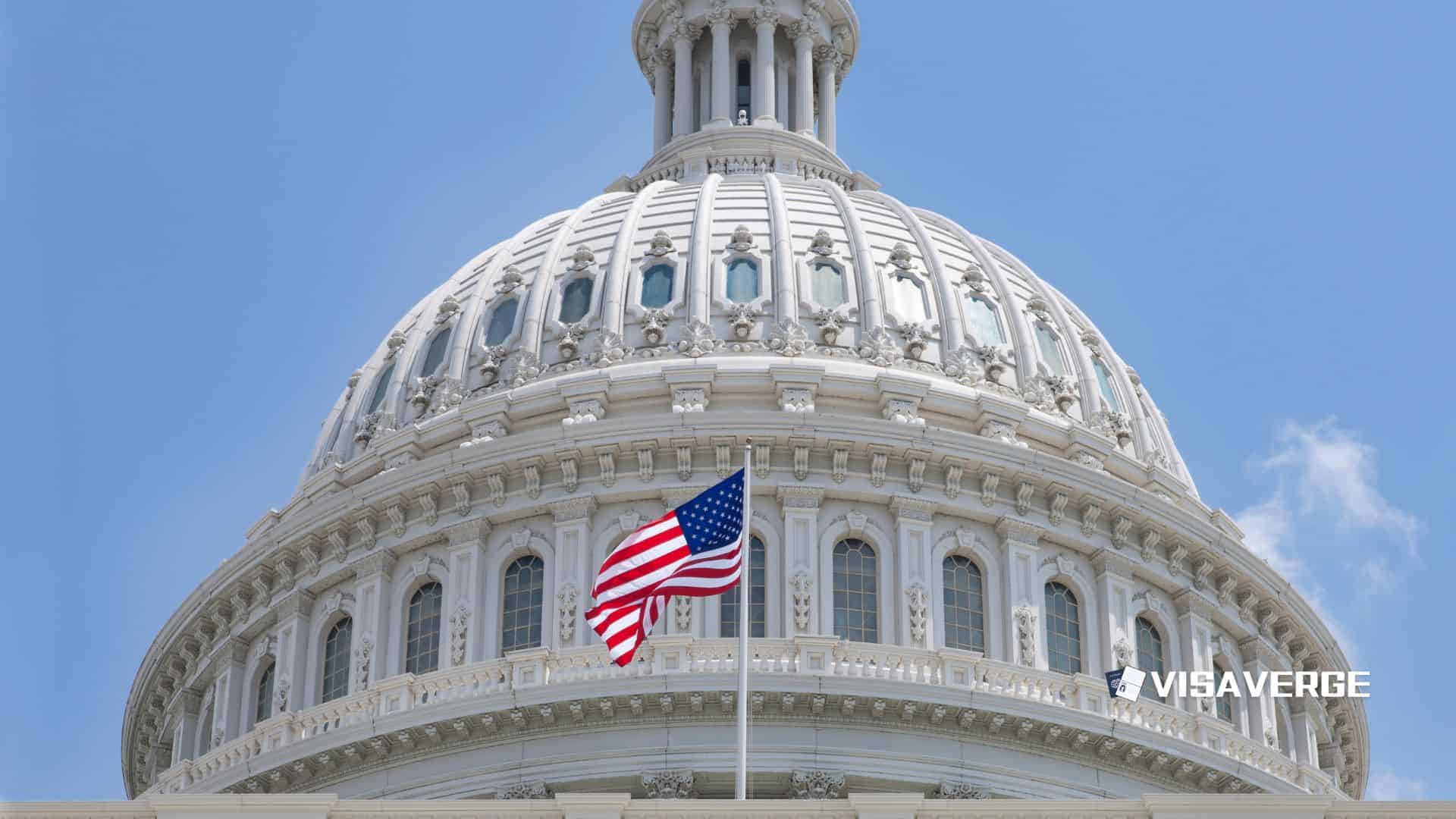Key Takeaways
• Barbara Stone, 71, was detained eight hours by ICE at San Diego immigration court on July 8, 2025.
• Stone was accused of pushing an ICE officer, a claim denied and unsupported by video evidence.
• No charges filed; advocates warn the detention intimidates ICE observers and threatens First Amendment rights.
A 71-year-old U.S. citizen, Barbara Stone, was handcuffed and detained by ICE agents for eight hours at the San Diego immigration court on July 8, 2025. Stone, who was at the courthouse to observe and document ICE arrests, was accused of pushing an officer—a claim she denies. The incident, captured on video and widely shared, has sparked concern among immigrant advocates and raised questions about civil rights and ICE enforcement practices.
What Happened at the San Diego Immigration Court

Barbara Stone, a grandmother and longtime U.S. citizen, arrived at the San Diego immigration court on Tuesday, July 8, 2025. Her goal was to document ICE activity and observe how federal agents treated people at the courthouse. This type of observation is protected under the First Amendment, which allows people to watch and record public proceedings and law enforcement actions.
During her visit, ICE agents approached Stone. According to Stone and witnesses, she was quietly observing and recording events. Suddenly, an ICE officer accused her of pushing him. Stone strongly denies this, and video footage shared online shows a tense exchange but does not clearly support the officer’s claim. ICE agents then handcuffed Stone and took her into custody, where she remained for eight hours. Authorities confiscated her phone, and she was left with a large bruise and described feeling mentally and physically traumatized.
No charges have been filed against Stone. Her husband, Gershon Shafir, told reporters that Stone is a peaceful person who went to the courthouse to protect refugees and would never interfere with law enforcement. “She’s there to help people, not to cause trouble,” Shafir said.
ICE and Official Responses
ICE has not commented directly on the incident. When asked, ICE officials referred all questions to the Federal Protective Service (FPS), which is part of the Department of Homeland Security and is responsible for security at federal courthouses. As of July 10, 2025, FPS has not responded to requests for comment.
Advocates and legal observers have spoken out about the incident. Ruth Mendez, a member of Detention Resistance, an advocacy group that supports volunteers and monitors ICE actions, said, “This sends a very clear message of intimidation to anyone who wants to observe or document what ICE is doing. There’s a very real fear now among volunteers and immigrant communities.” Mendez warned that such actions could discourage people from attending court proceedings or volunteering to help immigrants.
First Amendment Rights and Legal Context
The First Amendment of the U.S. Constitution protects the right to observe and document public proceedings, including court hearings and law enforcement actions. Legal experts say that arresting or detaining someone for these activities raises serious constitutional questions. According to analysis by VisaVerge.com, the absence of charges against Stone suggests that her detention may have been intended to intimidate or prevent her from observing ICE actions, rather than to address a real crime.
Civil rights advocates argue that this incident is an example of ICE overstepping its authority and violating the rights of U.S. citizens. “When a peaceful observer is handcuffed and held for hours without charges, it undermines public trust and chills legal oversight,” said a spokesperson for a national civil liberties group.
ICE Enforcement Practices in Sensitive Settings
ICE, or U.S. Immigration and Customs Enforcement, is responsible for enforcing immigration laws in the United States 🇺🇸. In recent years, ICE has faced criticism for its tactics, especially in sensitive places like courthouses, schools, and hospitals. Many advocates say that aggressive enforcement in these settings can create fear and discourage people from seeking help or participating in legal processes.
The San Diego immigration court is a place where immigrants and their families come to resolve legal matters, often under stressful circumstances. The presence of ICE agents and the risk of detention can make these experiences even more difficult. The incident involving Barbara Stone highlights the ongoing tension between immigration enforcement and the need to protect civil rights.
Impact on Volunteers, Observers, and the Immigrant Community
The detention of Barbara Stone has sent shockwaves through the community of volunteers and legal observers who support immigrants at the San Diego immigration court and across the country. Many worry that they could face similar treatment if they continue their work.
- Volunteers and Observers: The risk of being detained or harassed may discourage people from volunteering or attending court proceedings. This could reduce public oversight of ICE actions and make it harder to hold authorities accountable.
- Immigrant Community: The incident has increased fear and anxiety among immigrants and their families. Many now worry that even U.S. citizens are not safe from aggressive enforcement tactics.
- Public Oversight: When observers are intimidated or removed, it becomes harder for the public to know what is happening inside immigration courts. This lack of transparency can lead to abuses of power and a loss of trust in the system.
Legal and Policy Implications
Legal experts say that the detention of a U.S. citizen for observing court proceedings is troubling and may violate constitutional rights. They call for a thorough investigation into the actions of ICE and FPS at the San Diego immigration court.
- No Charges Filed: The fact that no charges have been filed against Stone suggests that her detention was not based on a real crime. This raises questions about the use of preventive or intimidation tactics by law enforcement.
- First Amendment Protections: The right to observe and document public proceedings is a cornerstone of democracy. Limiting this right can have serious consequences for transparency and accountability.
- Policy Review: The incident may prompt a review of ICE protocols regarding interactions with legal observers and the public at immigration courts. Lawmakers and civil rights groups are likely to push for clearer guidelines and stronger protections.
Community and Advocacy Group Responses
Detention Resistance, the group involved in supporting volunteers and monitoring ICE actions, has called for an official investigation into the incident. They are urging other advocacy groups, legal aid organizations, and members of the public to demand accountability from ICE and FPS.
Legal aid organizations are also stepping up to provide support to those affected by immigration enforcement actions. They offer advice, legal representation, and resources to help people understand their rights and protect themselves from unlawful detention.
Broader Implications for Civil Rights and Immigration Enforcement
The incident at the San Diego immigration court is part of a larger debate about the balance between security and civil liberties in the United States 🇺🇸. As ICE continues to enforce immigration laws, questions remain about how to protect the rights of citizens and non-citizens alike.
- Transparency and Accountability: Public oversight is essential for ensuring that law enforcement agencies act within the law. When observers are removed or intimidated, it becomes harder to hold authorities accountable.
- Chilling Effect: The fear of detention or harassment may prevent people from participating in legal processes or supporting their communities. This can weaken the ability of immigrant communities to defend their rights.
- Use of Taxpayer Funds: The public has a right to know how taxpayer money is being used, especially when it comes to law enforcement and immigration. Incidents like this raise questions about the priorities and practices of agencies like ICE.
Potential Solutions and Next Steps
Advocates and legal experts are calling for several steps to address the issues raised by this incident:
- Independent Investigation: An independent inquiry into the actions of ICE and FPS at the San Diego immigration court could help determine whether rights were violated and what changes are needed.
- Clear Protocols: Agencies should develop clear guidelines for interacting with legal observers and the public. These protocols should protect First Amendment rights and ensure that observers can safely document public proceedings.
- Training for Officers: Law enforcement officers should receive training on constitutional rights and the importance of transparency. This can help prevent future incidents and build trust with the community.
- Support for Volunteers: Advocacy groups should continue to support volunteers and legal observers, providing them with information about their rights and resources for legal assistance.
- Public Awareness: Raising awareness about the importance of public oversight and the rights of observers can help build support for reforms and protect civil liberties.
What You Can Do
If you are interested in supporting immigrant communities or observing court proceedings, it is important to know your rights. The American Civil Liberties Union (ACLU) provides helpful resources on your rights when observing or recording law enforcement. You can find more information on their official website.
If you witness or experience an incident involving ICE or other law enforcement agencies, consider the following steps:
- Document the Incident: If it is safe to do so, record video or take notes about what happened. This information can be valuable for legal challenges or investigations.
- Contact Advocacy Groups: Organizations like Detention Resistance and local legal aid groups can provide support and advice.
- Seek Legal Help: If you are detained or your rights are violated, contact a lawyer or legal aid organization as soon as possible.
Looking Ahead: The Future of Immigration Enforcement and Civil Rights
The detention of Barbara Stone at the San Diego immigration court is likely to have lasting effects on immigration enforcement and civil rights in the United States 🇺🇸. As more people become aware of the risks faced by observers and volunteers, there may be increased pressure on ICE and other agencies to change their practices.
- Possible Investigations: Lawmakers and civil rights groups may push for official inquiries into the incident and broader ICE conduct at immigration courts.
- Policy Changes: The incident could lead to new policies or laws designed to protect observers and ensure transparency in immigration enforcement.
- Community Mobilization: Immigrant rights groups are likely to increase their efforts to monitor and challenge ICE practices, both in San Diego and nationwide.
Conclusion: Protecting Rights and Building Trust
The case of Barbara Stone is a reminder of the importance of protecting civil rights and maintaining public oversight of law enforcement. As the United States 🇺🇸 continues to debate immigration policy and enforcement, it is essential to ensure that the rights of all people—including citizens, immigrants, and observers—are respected.
For those affected by immigration enforcement or interested in supporting their communities, staying informed and connected to advocacy groups is key. By working together, communities can help protect civil liberties and promote fair, transparent immigration practices.
For more information on immigration courts and enforcement practices, visit the U.S. Department of Justice’s official page on immigration courts.
As reported by VisaVerge.com, the incident at the San Diego immigration court highlights the ongoing challenges faced by immigrants, advocates, and the public in balancing security with constitutional rights. The outcome of this case may shape future policies and practices, affecting not only those at the courthouse but communities across the country.
Learn Today
ICE → U.S. Immigration and Customs Enforcement responsible for enforcing immigration laws domestically.
First Amendment → Constitutional right protecting freedom of speech, assembly, and the right to observe public proceedings.
Federal Protective Service → Agency responsible for security at federal courthouses, under the Department of Homeland Security.
Detention Resistance → Advocacy group supporting volunteers monitoring ICE actions and documenting immigration enforcement.
San Diego Immigration Court → Federal court handling immigration cases and deportation proceedings in San Diego, California.
This Article in a Nutshell
Barbara Stone was handcuffed at San Diego immigration court despite denying accusations. This case highlights tensions between ICE enforcement and citizens’ rights under the First Amendment, raising concerns about intimidation tactics and threats to public oversight of immigration proceedings nationwide.
— By VisaVerge.com












